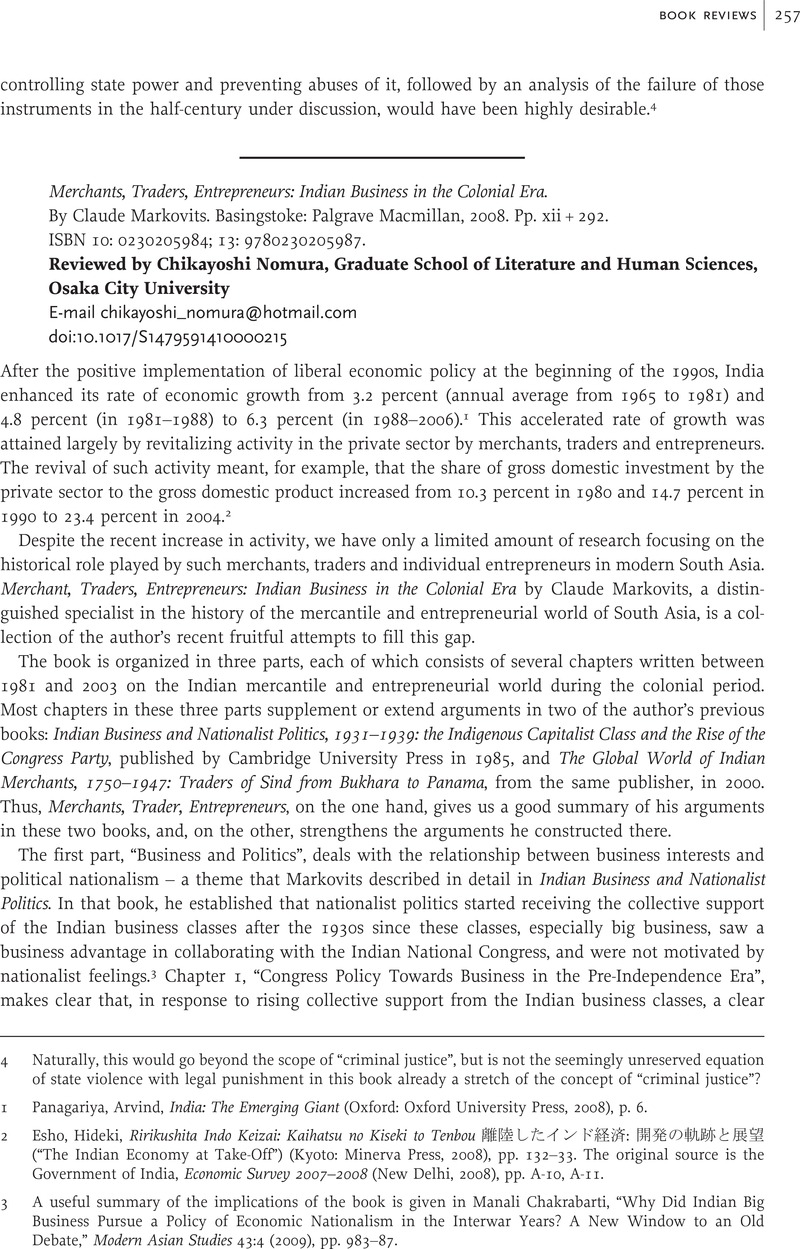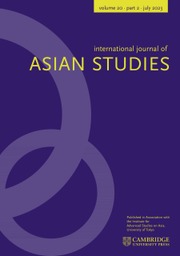No CrossRef data available.
Article contents
Merchants, Traders, Entrepreneurs: Indian Business in the Colonial Era. By Claude Markovits. Basingstoke: Palgrave Macmillan, 2008. Pp. xii + 292. ISBN 10: 0230205984; 13: 9780230205987.
Published online by Cambridge University Press: 15 June 2010
Abstract

- Type
- Book reviews
- Information
- Copyright
- Copyright © Cambridge University Press 2010
References
1 Panagariya, Arvind, , India: The Emerging Giant (Oxford: Oxford University Press, 2008), p. 6Google Scholar.
2 Esho, Hideki, , Ririkushita Indo Keizai: Kaihatsu no Kiseki to Tenbou 離陸したインド経済: 開発の軌跡と展望 (“The Indian Economy at Take-Off”) (Kyoto: Minerva Press, 2008), pp. 132–33Google Scholar. The original source is the Government of India, Economic Survey 2007–2008 (New Delhi, 2008), pp. A-10, A-11.
3 A useful summary of the implications of the book is given in Chakrabarti, Manali, “Why Did Indian Big Business Pursue a Policy of Economic Nationalism in the Interwar Years? A New Window to an Old Debate,” Modern Asian Studies 43:4 (2009), pp. 983–87CrossRefGoogle Scholar.
4 On such a move towards industrial-oriented state capitalism, as Nakazato recently clarified, on the basis of careful investigation of archival evidence, new light has been shed on “the role of cooperation between Indian big business and the colonial government in introducing a new economic policy” of positive government intervention. Nakazato, Nariaki, , “The Transfer of Economic Power in India: Indian Big Business, the British Raj and Development Planning, 1930–1948,” in The Unfinished Agenda: Nation-Building in South Asia, Hasan, Mushirul, and Nakazato, Nariaki, eds. (New Delhi: Manohar, 2001)Google Scholar. According to Nakazato, “During the early 1940s the Indian economy was being remodeled into a ‘wartime economy’, which required careful planning and collaboration” between two agencies: Indian industrialists, who needed technology transfer from abroad for further industrial development; and the colonial government, which was “in desperate need of Cupertino on the part of Indian industrialists and the Indian people at large to maintain and boost war production.” Ibid., pp. 253, 305.
5 Markovits, Claude, Merchants, Traders, Entrepreneurs: Indian Business in the Colonial Era, p. 121.
6 Ibid., p. 179.
7 Ibid., p. 188.
8 Markovits, , “The Political Economy of Opium Smuggling in Early Nineteenth Century India: Leakage or Resistance?” Modern Asian Studies 43:1 (2009), p. 89CrossRefGoogle Scholar.
9 Markovits, Merchants, pp. 264–65.




